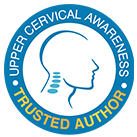upper cervical blogdr. blom Work Specifically in the neck and neck related disorders?
|
 If a person feels dizzy, he or she is lightheaded and may lose their balance. If one has vertigo, that person may feel like he or she is spinning or that the surrounding room is. A recent study, in May of 2015, revealed that eighty percent of people who got whiplash due to a traffic accident showed cerebrospinal hypervolemia, in other words, a decrease in the amount of fluid that acts as a cushion to the brain. This may be part of the cause for vertigo and dizziness. Dizziness, vertigo, and motion sickness all relate to the way the body is balanced. This occurs through a complicated interaction of the inner ear, the eyes, the sensory receptors of the muscles and joints, and the pressure receptors that are in the joints and spine. Most importantly, the central nervous system is involved. Made up of the spinal cord and brain, its job is to process the information needed to keep balance and equilibrium in check. If the brain begins receiving distorted signals from the body, vertigo and dizziness can occur. Why does this happen? To learn more about the connection between head and neck injuries and vertigo download our complimentary e-book When the C1, also known as the atlas vertebra, suffers a misalignment from a fall, an auto accident, or other trauma it places undue pressure on the brainstem, which connects the brain and the spinal cord. The way that the body sends and processes information becomes hindered. This results in various health problems, vertigo and dizziness being two of them. By seeking the care of an upper cervical chiropractor, a person is taking the first step to recovery. We specialize in detecting misalignments in the upper part of the neck and then working with patients individually, according to their needs, to correct the problem. The advanced methods that we use have been studied thoroughly and have proved to be successful in treating vertigo, motion sickness, and dizziness. It is important for all to take note of the way their body is functioning and take steps to correct any misalignment that may have occurred and may be causing problems. We would be happy to schedule an examination. Relief of symptoms may be just around the corner.
0 Comments
 When Everything Spins If you go through times when it feels like everything is spinning, but you're not moving, we understand the pain and frustration you're feeling. You know you're suffering from Vertigo or Disequilibrium, but you're not sure which one. That can be frustrating, but not know which one is not nearly as frustrating as just going through the stress. Well, they are similar, but there are differences. People who experience Vertigo get the sensation they are spinning when there is no movement. People who suffer from Disequilibrium deal with the sensation that they're falling, the floor is tilting, or they're floating. Now, it's important to note that both of these conditions are signs of an underlying condition, so it's important for those who suffer from one of these conditions to know which one they suffer from. We'll look at those conditions caused by Vertigo in this blog, and then next week we'll look at those caused by Disequilibrium. Vertigo Related Diseases
Living Past Vertigo If you suffer from Vertigo, you will want to stop the suffering as soon as possible. Generally most people will first seek evaluation of an ear, nose and throat doctor to evaluate for some of the issues described above that may be causing vertigo. If none of those issues are at work then you likely will be prescribed some sort of medication for the symptoms and told that you will need to learn to live with it. However there is a common underlying cause of vertigo that many medical doctors are likely unaware of, this is what’s known as cervicogenic vertigo. Cervicogenic, meaning of the neck (cervical) is when vertigo, dizziness, disequilibrium, Ménière’s disease, tinnitus is a result of issues in the neck. If you have had a history of head or neck injuries including car accidents, falls, sports injuries, concussions, whiplash, been knocked unconscious etc. is very likely that you have suffered a misalignment to your upper neck. Misalignments in the upper neck can lead to a variety of changes with the nerves that began in that area at the level of the brainstem. Vertigo is just one of the symptoms that are commonly associated with upper neck misalignments. Dr. Grayson Blom has seen tremendous results with those suffering with vertigo and similar conditions by evaluating the upper neck for misalignment and correcting those misalignments in order to help regulate normal nerve, blood and cerebrospinal fluid flow to from and through the brain. References:
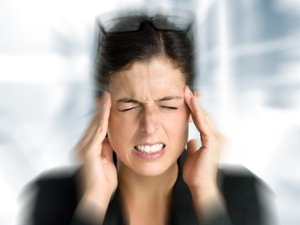 Your Body's Righting Reflex When there is a dysfunction in your ears, that affects your body's and your ears balancing systems. The end result is that a person whose ears do not work right will often experience Vertigo, Dizziness, Disequilibrium, or many other conditions that are caused by head and neck injuries. When the top two vertebrae in the neck, or the upper cervical spine, are out of alignment by as little as ¼ of a millimeter that causes the head to fall out of alignment with the body. That might not seem like it's that big of a deal, until you consider that a human head weighs 10-14 lbs. An Unequal Distribution of Weight When the weight of the head is unevenly distributed, the brain needs to make up for that unequal distribution. It initiated something called a Righting Reflex, which keeps a person's eyes and ears level with the horizon. The entire body compensates for this unequal distribution, and that unequal distribute of the body causes pressure on the nervous system. All of this begins when there is a misalignment in the upper neck vertebrae. That misalignment affects the part of the brain called the brainstem, which extends down to the spinal cord. The upper neck has more pressure sensors than anywhere else in the body, and each one gives the brain and brainstem information. The brainstem then sends message to the ears via cranial nerves that affect a person's balance. All of this can be due to two small bones causing misalignments throughout the body and unequal distribution of weight. The result of these changes affecting the brainstem can be and often is vertigo, dizziness, and disequilibrium. To find out more about the connection between head and neck injuries and Ménière's disease download are e-book below. Realigning Your Spine
Now that you know the bad news, you are probably ready for some good news. That unequal distribution of weight throughout your body is reversible. The only thing that needs to happen is that those two small bones in your upper neck, also called your upper cervical spine, need to be realigned. Though, not every person who deals with vertigo, dizziness, or disequilibrium has suffered from a misalignment in their upper neck. That means it's important they seek the care of an upper cervical chiropractor, so they can examine your upper neck vertebrae. If they find any misalignments in those top two bones in their neck, they will make any necessary adjustments and set you on a plan to hold the correction as long as possible. Then, the body can begin to heal itself. What to Do Next To find an upper cervical chiropractor in your area go to www.upcspine.com or if you are in the Boise Idaho area, just click the button to schedule an appointment. |
Dr. BlomUpper Cervical Chiropractor Categories
All
Archives
February 2024
|

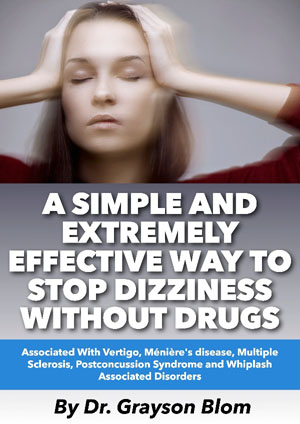

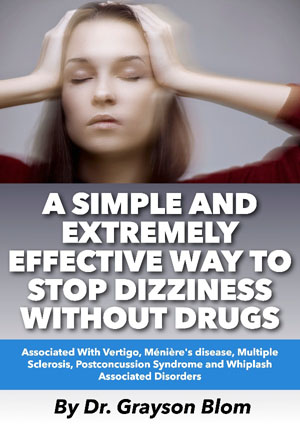

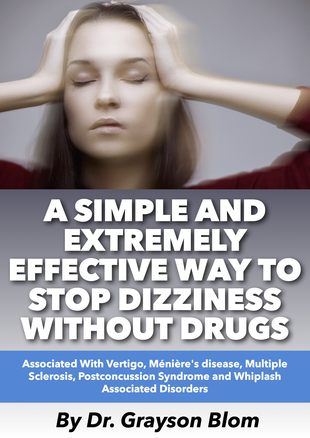

 RSS Feed
RSS Feed


